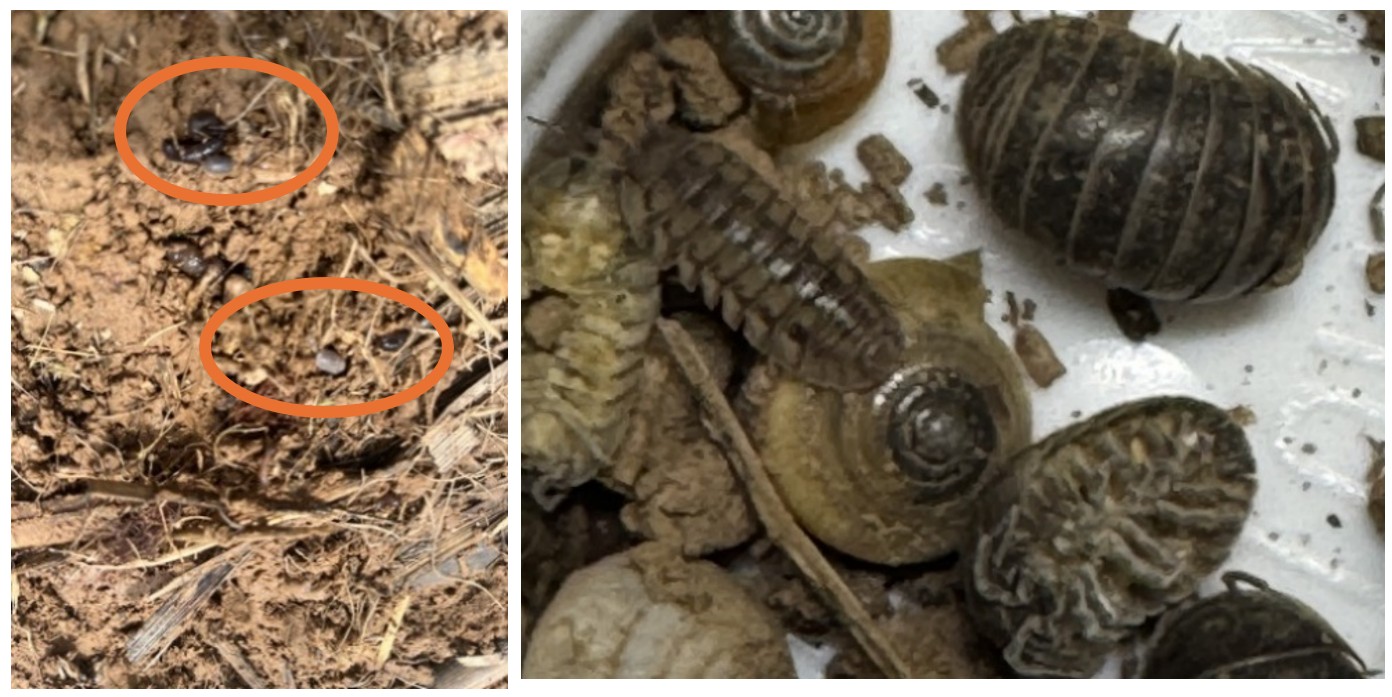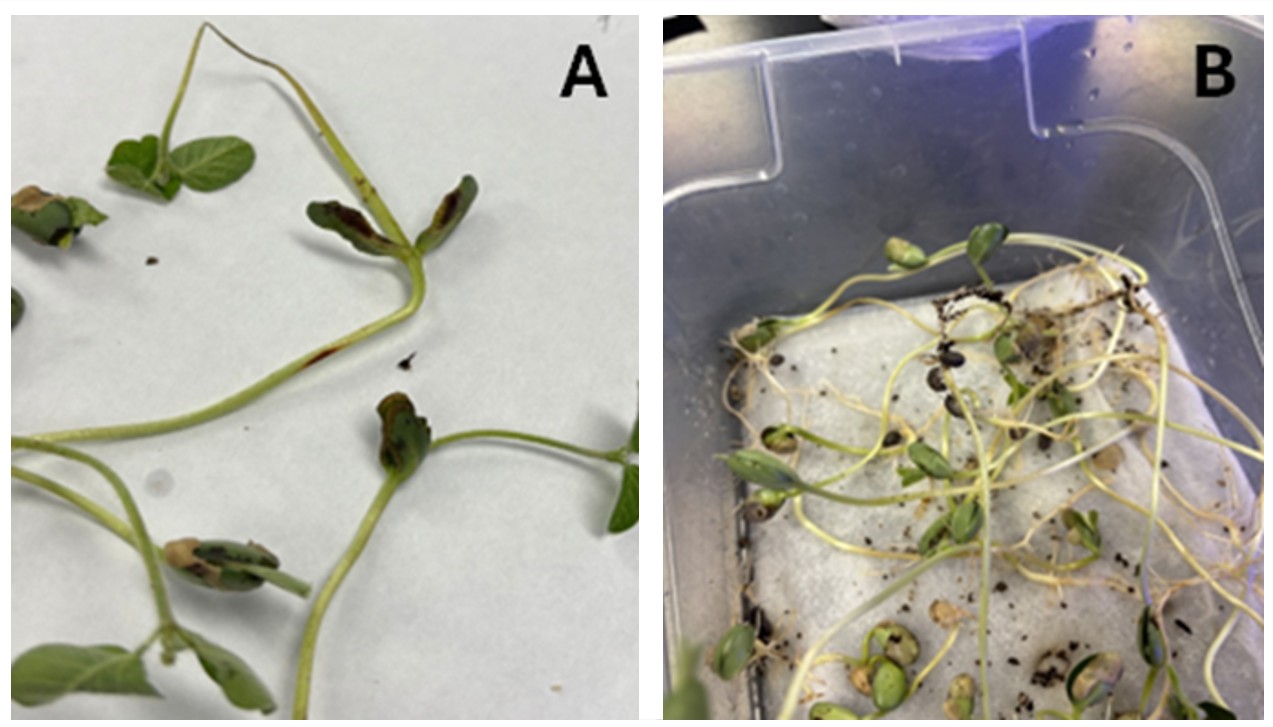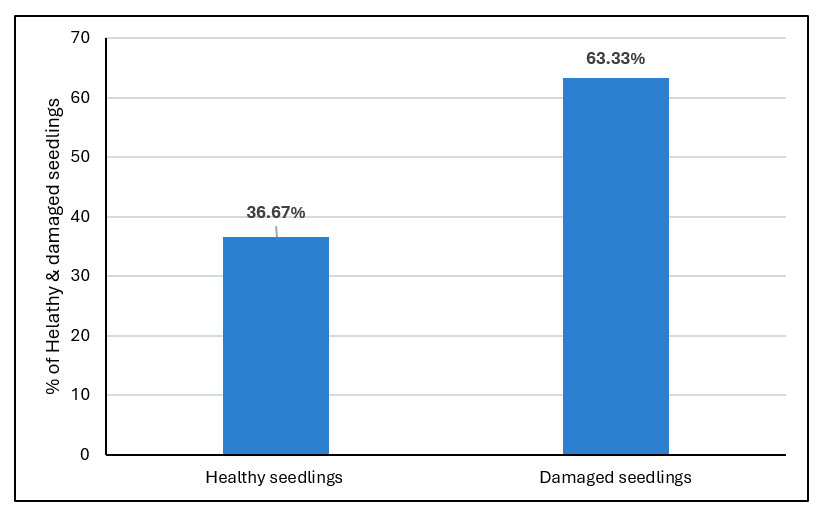Damage by Pillbugs on Soybean Seedlings under Laboratory Conditions
Damage by Pillbugs on Soybean Seedlings under Laboratory Conditions

Pillbugs, or roly-polies, are land-dwelling crustaceans—not insects. They are commonly found in moist environments with decaying organic matter and are generally considered decomposers. However, under favorable conditions, pillbugs can sometimes feed on live plant tissue, particularly during the early growth stages of crops like soybeans. They may damage cotyledons or even kill entire seedlings in areas with heavy residue and high moisture. These early signs of injury are often mistaken for slug or cutworm damage, which can lead to misidentification and ineffective management strategies (Figure 1). Injuries caused by pillbugs have been observed in commercial soybean fields in Nebraska and Kansas. Although this type of injury has not been reported in soybean fields in Kentucky, the entomology laboratory at the Research and Education Center (REC) in Princeton conducted a test to evaluate the potential damage of this organism.
Evaluation of Pillbug Damage in Laboratory and Results
A short observation trial was set up to evaluate pillbug damage to germinating soybean seedlings. Seedlings were grown in moist conditions in a plastic container, and pillbugs were introduced for 10 days (Figures 2A and 2B). Feeding damage was assessed at the end of the period.

Figures 3 and 4 illustrate injuries caused by pillbugs to soybean seedlings. Figure 3 shows that nearly two-thirds of the seedlings were injured in this study when pillbugs had no alternative food sources, such as organic matter or other materials. Figure 4 demonstrates that cotyledon damage was significantly more common than leaf damage, occurring in 78.95% and 21.05% of the seedlings, respectively. This suggests that pillbugs primarily target soybean cotyledons during the early growth stages.


Conclusion
Although pillbugs are primarily known as decomposers, they can cause significant damage to soybean seedlings under favorable conditions, especially in moist, no-till fields with heavy residue. In our test, more than 60% of seedlings were damaged in a simple observational study, with cotyledons being the most affected. This type of damage may be mistaken for slug or cutworm injury; therefore, proper pest identification is essential. Farmers should monitor early-planted soybeans in high-residue field systems and be aware that pillbugs may also be a major factor in early stand losses.
More Information
-
University of Nebraska Lincoln: Pillbugs Causing Injury to Soybean Crops in Nebraska
-
Kansas State University: Pillbugs
-
University of Kentucky: Sowbugs & Pillbugs
| Citation: Villanueva, R., Adhikari, S., 2025. Damage by Pillbugs on Soybean Seedlings under Laboratory Conditions. Kentucky Field Crops News, Vol 1, Issue 8. University of Kentucky, August 15, 2025. |

With assistance from Shreeya Adhikari, UK Summer Intern
